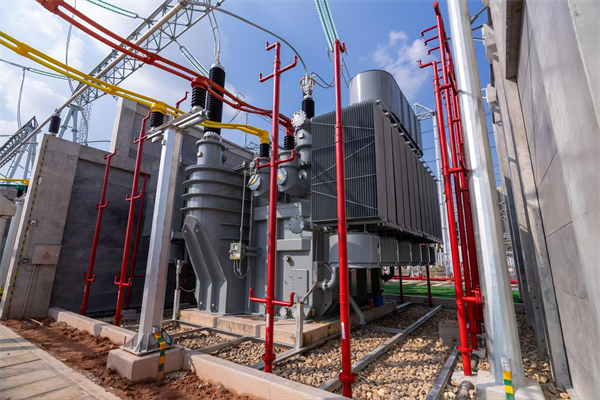The world’s first 500-kilovolt vegetable oil transformer, developed by Guangzhou Power Supply Bureau of China Southern Power Grid Co., Ltd., has been put into operation at the Zengcheng Substation in Guangzhou, South China’s Guangdong Province.
This marks the highest operating voltage level ever achieved for a vegetable oil transformer anywhere in the world, filling an international gap in the application of natural ester insulating oil at the 500 kV level.

The world’s first 500-kilovolt vegetable oil transformer has been put into operation at the Zengcheng Substation in Guangzhou, South China’s Guangdong Province. [Photo/sasac.gov.cn]
The transformer consumes about 65 tons of vegetable insulating oil. It can help reduce carbon emissions by 72.8 tons, equivalent to the emissions generated by 250,000 cars traveling one kilometer.
The project overcame challenges in high-quality vegetable insulating oil formulation and mass production for ultra-high-voltage transformers. It has established a complete technical system for the design, manufacturing, and operation of large vegetable oil transformers, and led the formulation of technical standards. Equipped with high-definition cameras, infrared sensing terminals, and fully automated online oil chromatography monitoring devices, the transformer enables 24-hour real-time monitoring and intelligent energy-saving operation.
Compared with traditional mineral oil transformers, the vegetable oil version greatly reduces fire and environmental risks, lowers carbon emissions, extends service life, and enhances overload capacity.
As the first 500 kV substation in Guangzhou, the Zengcheng Substation serves as a core power supply hub for the upcoming 15th National Games of China in November, ensuring reliable electricity supply to venues, hotels, and other critical facilities. Featuring “zero pollution and high reliability,” the vegetable oil transformer also improves resilience against extreme weather, with its oil-paper insulation system capable of withstanding temperatures 15°C higher than traditional equipment. Combined with refined operation and maintenance measures, it will provide strong support for stable power supply during the Games.
(Executive editor: Wang Ruoting)